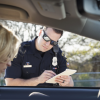DUI checkpoints, commonly known as sobriety checkpoints, are strategically placed roadblocks where law enforcement officers stop vehicles to check if drivers are intoxicated. These checkpoints have become a predominantly used strategy aimed at promoting road safety. Driving under the influence remains one of the leading causes of road accidents, and these checkpoints serve as both a deterrent and a means of apprehending those who might pose a risk to themselves and others on the road.
This article seeks to provide an in-depth overview of DUI checkpoints: their operation, their history, and their impact on society. This article explores the legalities surrounding these checkpoints and elucidates the rights drivers have when stopped. Whether you’re a driver curious about what to expect or an individual keen on understanding the broader implications of these checkpoints, this article explains it all.
Table of Contents
History and Purpose of DUI Checkpoints
DUI checkpoints, tracing their origins back to the 1980s, were introduced as a proactive measure to combat the alarming rise in drunk driving incidents. Statistics from that era painted a grim picture, with a significant portion of road accidents attributed to impaired driving. Over the decades, the introduction and enforcement of these checkpoints have played a monumental role in curbing such incidents. Studies consistently demonstrate that the visibility and presence of these sobriety checkpoints not only deter potential drunk drivers, but have also tangibly reduced DUI-related accidents, saving countless lives in the process.
How DUI Checkpoints Operate
The operation of DUI checkpoints is a blend of strategy, procedure, and technology. Law enforcement agencies meticulously select locations based on various factors, including historical accident data, traffic volume, and areas with high alcohol consumption. Once a spot is chosen, officers set up a systematic process to stop vehicles, either randomly or in a specific sequence. During the stop, officers observe drivers for signs of intoxication, engaging in brief conversations that might lead to further assessment. Advanced tools, most notably breathalyzers, are employed to gauge blood alcohol content (BAC) accurately, ensuring that those who pose a potential threat on the road due to impairment are identified and dealt with accordingly.
Legalities Surrounding DUI Checkpoints
The legal landscape of DUI checkpoints in the U.S. is complex and varies significantly from one jurisdiction to another. The U.S. Supreme Court, in the landmark decision of Michigan Dept. of State Police v. Sitz (1990), ruled that DUI checkpoints are constitutionally permissible, reasoning that the public’s interest in reducing drunk driving outweighs the minor infringement on individual liberties. However, the Court’s decision set a precedent at the federal level, leaving states to determine their specific policies. Consequently, while many states have embraced and regularly employ DUI checkpoints as a tool in their road safety arsenal, others, driven by concerns of individual rights or interpretations of their state constitutions, have either outlawed them or chosen not to use them in practice.
Drivers’ Rights at DUI Checkpoints
Right to Refuse a Search
At DUI checkpoints, drivers retain their Fourth Amendment right against unreasonable searches. While you can decline a search, doing so might raise suspicion. However, without clear probable cause, officers cannot search your vehicle.
Right to Remain Silent
Drivers aren’t obligated to answer questions beyond identifying themselves. If an officer probes further, you can politely assert your right to silence. This silence can’t be used against you, but it’s essential to vocalize your intent to remain silent.
Probable Cause for Search or Detainment
Probable cause arises from evident signs of intoxication, like the smell of alcohol, slurred speech, or visible open containers. If officers possess such reasons, they can detain a driver or search the vehicle without the driver’s consent.
Implications of Refusing a Breathalyzer Test
While drivers can decline a breathalyzer, many states enforce “implied consent” laws, meaning that refusal can lead to immediate license suspension and other potential penalties, regardless of actual intoxication.
Importance of Seeking Legal Counsel
Having a DUI lawyer ensures that your rights are upheld in case of detainment or arrest, and they can provide guidance throughout any legal proceedings that may follow.
Tips for DUI Checkpoints
When encountering a DUI checkpoint, remain calm and interact with law enforcement officers in a courteous manner. Understand that the primary goal of these checkpoints is to ensure road safety by preventing impaired driving. Before reaching the checkpoint, have your necessary documents such as your driver’s license, vehicle registration, and proof of insurance ready for presentation. In the event of detainment or unexpected complications, be aware of your rights and don’t hesitate to engage with legal representation when necessary. If you anticipate consuming alcohol, always prioritize safety by arranging a sober driver, or opt for ride-share services, ensuring you and others remain safe on the road.
DUI checkpoints ensure our roads remain safe from the perils of impaired driving. By understanding their operations, the legalities surrounding them, and our rights as drivers, we contribute to a smoother, more cooperative interaction with law enforcement. As responsible citizens, it’s incumbent upon us to always prioritize sobriety behind the wheel and appreciate the efforts that go into protecting our communities.







